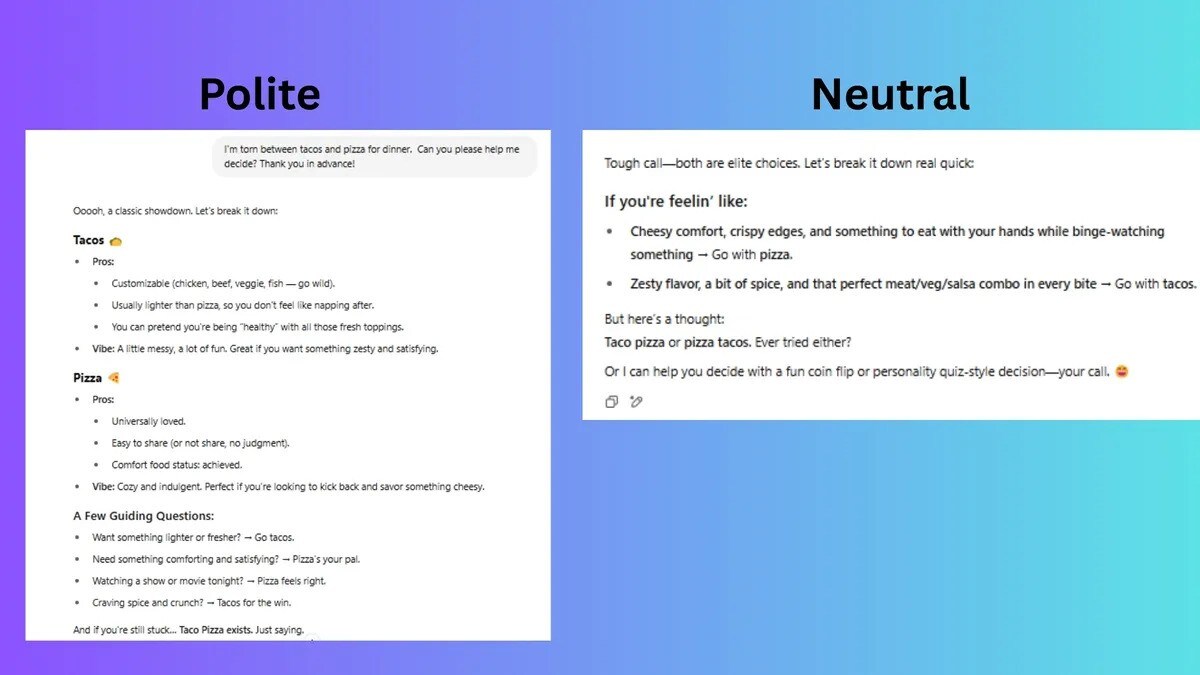
A few days ago, OpenAI CEO Sam Altman famously said that the company is losing a significant amount of money as a result of users saying “please” and “thank you” to ChatGPT.
“Tens of millions of dollars well spent--you never know,” was Altman's answer to an X (formerly Twitter) user who wished to know “how much money OpenAI has lost in electricity costs from people saying ‘please' and ‘thank you' to their models.”
tens of millions of dollars well spent--you never know
April 16, 2025Why Do Words Like ‘Please' And ‘Thank You' Come At A Cost For AI Models?
When it is about model training, and processing, generating, classifying, and summarising text, generative AI models consume a lot of energy. These models are basically using energy on every additional word or phrase that is being included by a user in their prompt.
This means increasing the word count in generative AI prompts is adding to the processing efforts of the additional tokens, and eventually leading to increasing operational costs.
So yes, that casual banter with ChatGPT—or any other AI chatbot for that matter—has a huge footprint, and even a little politeness in prompts or that underlying sarcasm of calling ChatGPT as “my master” comes at a cost.
Is Saying ‘Please' And ‘Thank You' To ChatGPT Still ‘Worth It'?
Altman further wrote that adding politeness in prompts is “worth it.” But why so?
Some experts contend that courteous prompts can improve user experience. Kurtis Beavers, Microsoft's design manager, observed that courteous inputs typically promote more cooperative and sophisticated generative AI replies. This was corroborated by a Microsoft WorkLab memo that said AI frequently mimics the formality and tone established by user inquiries.
According to a Future Publishing study that included 510 US participants and 518 UK participants, more than 55% claimed they consistently use polite language when communicating with AI, up from 49% in the previous survey.
In a comparison of two prompts asking whether to go with pizza or tacos for dinner, ChatGPT apparently gave better assistance when the user was polite. (Source: Future)
Also, in a comparison of two prompts asking whether to go with pizza or tacos for dinner, ChatGPT apparently gave better assistance when the user was polite, even offering advantages and disadvantages of each in its response. In contrast, a more straightforward prompt returned a more matter-of-fact tone and reply.
So yes, it does look like “please” and “thank you” work their magic not just on humans but on AI bots too!
Essential Business Intelligence, Continuous LIVE TV, Sharp Market Insights, Practical Personal Finance Advice and Latest Stories — On NDTV Profit.























